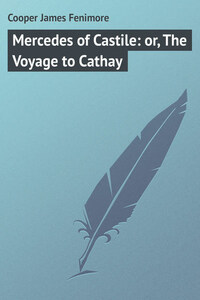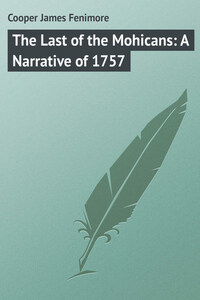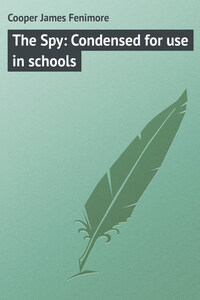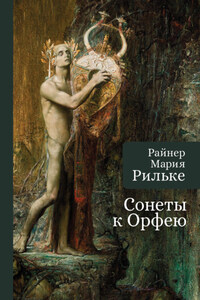PREFACE
So much has been written of late years, touching the discovery of America, that it would not be at all surprising should there exist a disposition in a certain class of readers to deny the accuracy of all the statements in this work. Some may refer to history, with a view to prove that there never were such persons as our hero and heroine, and fancy that by establishing these facts, they completely destroy the authenticity of the whole book. In answer to this anticipated objection, we will state, that after carefully perusing several of the Spanish writers – from Cervantes to the translator of the journal of Columbus, the Alpha and Omega of peninsular literature – and after having read both Irving and Prescott from beginning to end, we do not find a syllable in either of them, that we understand to be conclusive evidence, or indeed to be any evidence at all, on the portions of our subject that are likely to be disputed. Until some solid affirmative proof, therefore, can be produced against us, we shall hold our case to be made out, and rest our claims to be believed on the authority of our own statements. Nor do we think there is any thing either unreasonable or unusual in this course, as perhaps the greater portion of that which is daily and hourly offered to the credence of the American public, rests on the same species of testimony – with the trifling difference that we state truths, with a profession of fiction, while the great moral caterers of the age state fiction with the profession of truth. If any advantage can be fairly obtained over us, in consequence of this trifling discrepancy, we must submit.
There is one point, notwithstanding, concerning which it may be well to be frank at once. The narrative of the "Voyage to Cathay," has been written with the journal of the Admiral before us; or, rather, with all of that journal that has been given to the world through the agency of a very incompetent and meagre editor. Nothing is plainer than the general fact that this person did not always understand his author, and in one particular circumstance he has written so obscurely, as not a little to embarrass even a novelist, whose functions naturally include an entire familiarity with the thoughts, emotions, characters, and, occasionally, with the unknown fates of the subjects of his pen. The nautical day formerly commenced at meridian, and, with all our native ingenuity and high professional prerogatives, we have not been able to discover whether the editor of the journal has adopted that mode of counting time, or whether he has condescended to use the more vulgar and irrational practice of landsmen. It is our opinion, however, that in the spirit of impartiality which becomes an historian, he has adopted both. This little peculiarity might possibly embarrass a superficial critic; but accurate critics being so very common, we feel no concern on this head, well knowing that they will be much more apt to wink at these minor inconsistencies, than to pass over an error of the press, or a comma with a broken tail. As we wish to live on good terms with this useful class of our fellow-creatures, we have directed the printers to mis-spell some eight or ten words for their convenience, and to save them from headaches, have honestly stated this principal difficulty ourselves.
Should the publicity which is now given to the consequences of commencing a day in the middle have the effect to induce the government to order that it shall, in future, with all American seamen, commence at one of its ends, something will be gained in the way of simplicity, and the writing of novels will, in-so-much, be rendered easier and more agreeable.
As respects the minor characters of this work, very little need be said. Every one knows that Columbus had seamen in his vessels, and that he brought some of the natives of the islands he had discovered, back with him to Spain. The reader is now made much more intimately acquainted with certain of these individuals, we will venture to say, than he can be possibly by the perusal of any work previously written. As for the subordinate incidents connected with the more familiar events of the age, it is hoped they will be found so completely to fill up this branch of the subject, as to render future investigations unnecessary.
"There was knocking that shook the marble floor,
And a voice at the gate, which said —
'That the Cid Ruy Diez, the Campeador,
Was there in his arms array'd.'" —
Mrs. Hemans.
Whether we take the pictures of the inimitable Cervantes, or of that scarcely less meritorious author from whom Le Sage has borrowed his immortal tale, for our guides; whether we confide in the graver legends of history, or put our trust in the accounts of modern travellers, the time has scarcely ever existed when the inns of Spain were good, or the roads safe. These are two of the blessings of civilization which the people of the peninsula would really seem destined never to attain; for, in all ages, we hear, or have heard, of wrongs done the traveller equally by the robber and the host. If such are the facts to-day, such also were the facts in the middle of the fifteenth century, the period to which we desire to carry back the reader in imagination.












